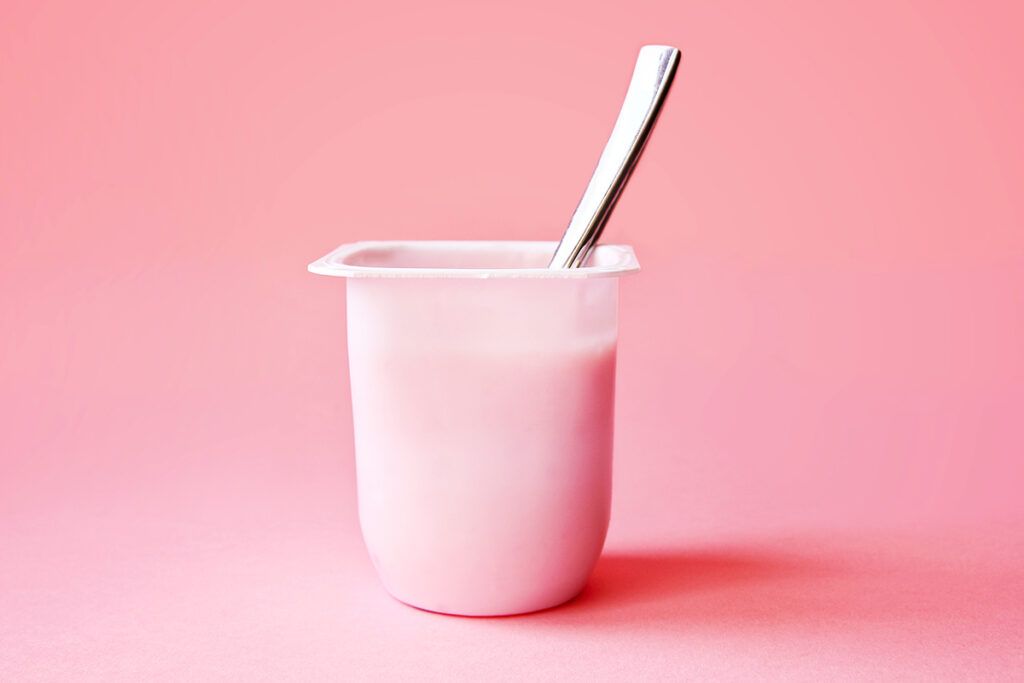Although people usually associate bacteria with something bad for your health, probiotics are a kind of bacteria that is healthy for your body, particularly your digestive system.
They can be found naturally in your diet in fermented foods like some yogurts, fermented cheeses, and certain fruit juices.
As eczema stems from an immune system response, it’s thought that probiotics, which help strengthen the immune system, can help treat the condition. However, research is ongoing, and the results aren’t conclusive yet.
Knowing more about how probiotics might play a role in eczema treatment, along with other, more traditional methods, can help you manage your condition more effectively.
Types of probiotics

According to the National Institute of Health, seven main categories of bacteria are commonly found in probiotics:
- Lactobacillus
- Bifidobacterium
- Saccharomyces
- Streptococcus
- Enterococcus
- Escherichia
- Bacillus
They occur naturally in your gut but can also be found in a variety of foods, especially fermented ones. Examples include:
- yogurts
- sauerkraut
- kimchi
- pickles made with salt and water
- fermented cheeses like Gouda or cheddar
You can also get supplements that contain probiotics, either one kind or multiple kinds together. These can help ensure you’re getting the right amount and can be good if you don’t like the foods that have them naturally.
Lactobacillus and Bifidobacterium are the two most commonly researched for their effects on eczema. You should consider talking with a healthcare professional before adding probiotics to your diet. They can advise you on which ones to take and how much you should consume.
While probiotics are generally safe to consume, both in foods or supplements, if you have a compromised immune system or a bowel condition, you should consult with a doctor before adding more to your diet.
Benefits of probiotics
Probiotics may help strengthen the immune system. They can work with the many different cells and organisms inside your gut, stimulating immune system responses. This is very beneficial for overall health and fighting off different infections or diseases.
Regardless of their role in specific conditions like eczema, researchers agree that probiotics have many health benefits.
Benefits in eczema
As an immune response to the environment generally triggers eczema, it’s thought that the way probiotics boost the immune system can help treat eczema.
There has been some research into whether probiotics can help prevent eczema from developing in young children. One 2019 trial of 290 participants found that eczema prevalence was lower in a group of children given probiotics early in their life compared with a group given a placebo at the same age.
One 2016 review of studies found that probiotics given to pregnant people can help prevent their children from developing eczema, although it notes that giving the probiotics directly to the child had no particular effect.
The research is less promising when it comes to treating eczema that’s already present in an individual. A 2018 review concluded that across 39 trials and 2599 participants, probiotics had little or no impact on eczema severity. However, they did note that there were no negative effects of probiotic intake.
Other treatments
The best way to treat eczema is to avoid environmental triggers that cause flare ups. These can include food sensitivities, skin irritants like certain detergents or fabrics, and stress.
There are several other methods of treating eczema, both medical and natural:
- Moisturizers: Keeping the skin moisturized can help reduce the painful symptoms of eczema. You can try a fragrance-free moisturizer after bathing and throughout the day, making sure to find one that won’t trigger your symptoms.
- Topical corticosteroids: Topical corticosteroids are commonly prescribed by doctors to reduce inflammation and itching in eczema patients. Some examples of these include triamcinolone (Kenalog), fluticasone (Cutivate), and amcinonide (Cyclocort).
- Antihistamines: Antihistamines can help reduce the itching and inflammation symptoms of eczema. These include diphenhydramine (Benadryl), loratadine (Claritin), cetirizine (Zyrtec), and fexofenadine (Allegra).
- Immunomodulators: Immunomodulators are medications that can help regulate the immune system and reduce inflammation in eczema. They may be used in cases where topical corticosteroids aren’t recommended or if they’ve not been helpful. Examples include pimecrolimus (Elidel) and tacrolimus (Protopic).
- Wet wraps: Wet wraps can soothe and hydrate eczema-prone skin. Apply a moisturizer to the skin, wrap it with wet gauze or clothing, and then cover it with dry clothing to help seal in moisture.
- Light therapy: Light therapy involves exposing the affected skin area to controlled ultraviolet light to reduce inflammation and improve skin health.
If you need help covering the cost of medications, the free Optum Perks Discount Card could help you save up to 80% on prescription drugs. Follow the links on drug names for savings on that medication, or search for a specific drug here.
